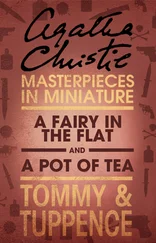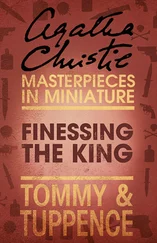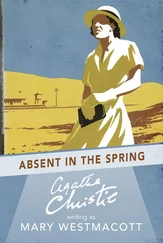Agatha Christie - While the light lasts
Здесь есть возможность читать онлайн «Agatha Christie - While the light lasts» весь текст электронной книги совершенно бесплатно (целиком полную версию без сокращений). В некоторых случаях можно слушать аудио, скачать через торрент в формате fb2 и присутствует краткое содержание. Жанр: Старинная литература, на английском языке. Описание произведения, (предисловие) а так же отзывы посетителей доступны на портале библиотеки ЛибКат.
- Название:While the light lasts
- Автор:
- Жанр:
- Год:неизвестен
- ISBN:нет данных
- Рейтинг книги:4 / 5. Голосов: 1
-
Избранное:Добавить в избранное
- Отзывы:
-
Ваша оценка:
- 80
- 1
- 2
- 3
- 4
- 5
While the light lasts: краткое содержание, описание и аннотация
Предлагаем к чтению аннотацию, описание, краткое содержание или предисловие (зависит от того, что написал сам автор книги «While the light lasts»). Если вы не нашли необходимую информацию о книге — напишите в комментариях, мы постараемся отыскать её.
While the light lasts — читать онлайн бесплатно полную книгу (весь текст) целиком
Ниже представлен текст книги, разбитый по страницам. Система сохранения места последней прочитанной страницы, позволяет с удобством читать онлайн бесплатно книгу «While the light lasts», без необходимости каждый раз заново искать на чём Вы остановились. Поставьте закладку, и сможете в любой момент перейти на страницу, на которой закончили чтение.
Интервал:
Закладка:
But Fate, or the little god, was kind, and sent him an inspiration - or what he regarded as such. With infinite delight in his own cunning, he purchased a woman's handkerchief, a frail little affair of cambric and lace which he almost feared to touch, and, thus armed, he followed her as she departed, and stopped her in the Egyptian room.
"Excuse me, but is this yours?" He tried to speak with airy unconcern, and signally failed.
The Lonely Lady took it, and made a pretence of examining it with minute care.
"No, it is not mine.
" She handed it back, and added, with what he felt guiltily was a suspicious glance: "It's quite a new one. The price is still on it."
But he was unwilling to admit that he had been found out. He started on an over-plausible flow of explanation.
"You see, I picked it up under that big case. It was just by the farthest leg of it.
" He derived great relief from this detailed account. "So, as you had been standing there, I thought it must be yours and came after you with it."
She said again: "No, it isn't mine," and added, as if with a sense of ungraciousness, "Thank you."
The conversation came to an awkward standstill. The girl stood there, pink and embarrassed, evidently uncertain how to retreat with dignity.
He made a desperate effort to take advantage of his opportunity.
"I - I didn't know there was anyone else in London who cared for our little lonely god till you came."
She answered eagerly, forgetting her reserve: "Do you call him that too?"
Apparently, if she had noticed his pronoun, she did not resent it. She had been startled into sympathy, and his quiet "Of course!" seemed the most natural rejoinder in the world.
Again there was a silence, but this time it was a silence born of understanding.
It was the Lonely Lady who broke it in a sudden remembrance of the conventionalities.
She drew herself up to her full height, and with an almost ridiculous assumption of dignity for so small a person, she observed in chilling accents: "I must be going now. Good morning.
" And with a slight, stiff inclination of her head, she walked away, holding herself very erect.
By all acknowledged standards Frank Oliver ought to have felt rebuffed, but it is a regrettable sign of his rapid advance in depravity that he merely murmured to himself: "Little darling!"
He was soon to repent of his temerity, however. For ten days his little lady never came near the Museum. He was in despair! He had frightened her away! She would never come back! He was a brute, a villain! He would never see her again!
In his distress he haunted the British Museum all day long. She might merely have changed her time of coming. He soon began to know the adjacent rooms by heart, and he contracted a lasting hatred of mummies. The guardian policeman observed him with suspicion when he spent three hours poring over Assyrian hieroglyphics, and the contemplation of endless vases of all ages nearly drove him mad with boredom.
But one day his patience was rewarded. She came again, rather pinker than usual, and trying hard to appear self-possessed.
He greeted her with cheerful friendliness.
"Good morning. It is ages since you've been here."
"Good morning."
She let the words slip out with icy frigidity, and coldly ignored the end part of his sentence.
But he was desperate.
"Look here!" He stood confronting her with pleading eyes that reminded her irresistibly of a large, faithful dog. "Won't you be friends? I'm all alone in London - all alone in the world, and I believe you are, too. We ought to be friends. Besides, our little god has introduced us."
She looked up half doubtfully, but there was a faint smile quivering at the corners of her mouth.
"Has he?"
"Of course!"
It was the second time he had used this extremely positive form of assurance, and now, as before, it did not fail of its effect, for after a minute or two the girl said, in that slightly royal manner of hers:
"Very well."
"That's splendid," he replied gruffly, but there was something in his voice as he said it that made the girl glance at him swiftly, with a sharp impulse of pity.
And so the queer friendship began. Twice a week they met, at the shrine of a little heathen idol. At first they confined their conversation solely to him. He was, as it were, at once a palliation of, and an excuse for their friendship. The question of his origin was widely discussed. The man insisted on attributing to him the most bloodthirsty characteristics. He depicted him as the terror and dread of his native land, insatiable for human sacrifice, and bowed down to by his people in fear and trembling. In the contrast between his former greatness and his present insignificance there lay, according to the man, all the pathos of the situation.
The Lonely Lady would have none of this theory. He was essentially a kind little god, she insisted. She doubted whether he had ever been very powerful. If he had been so, she argued, he would not now be lost and friendless, and, anyway, he was a dear little god, and she loved him, and she hated to think of him sitting there day after day with all those other horrid, supercilious things jeering at him, because you could see they did! After this vehement outburst the little lady was quite out of breath.
That topic exhausted, they naturally began to talk of themselves. He found out that his surmise was correct. She was a nursery governess to a family of children who lived at Hampstead. He conceived an instant dislike of these children; of Ted, who was five and really not naughty, only mischievous; of the twins who were rather trying, and of Molly, who wouldn't do anything she was told, but was such a dear you couldn't be cross with her!
"Those children bully you," he said grimly and accusingly to her.
"They do not," she retorted with spirit. "I am extremely stern with them."
"Oh! Ye gods!" he laughed. But she made him apologize humbly for his scepticism.
She was an orphan, she told him, quite alone in the world.
Gradually he told her something of his own life: of his official life, which had been painstaking and mildly successful; and of his unofficial pastime, which was the spoiling of yards of canvas.
"Of course, I don't know anything about it," he explained. "But I have always felt I could paint something someday. I can sketch pretty decently, but I'd like to do a real picture of something. A chap who knew once told me that my technique wasn't bad."
She was interested, pressed for details.
"I am sure you paint awfully well."
He shook his head.
"No, I've begun several things lately and chucked them up in despair. I always thought that, when I had the time, it would be plain sailing. I have been storing up that idea for years, but now, like everything else, I suppose, I've left it too late."
"Nothing's too late - ever," said the little lady, with the vehement earnestness of the very young.
He smiled down on her. "You think not, child? It's too late for some things for me."
And the little lady laughed at him and nicknamed him Methuselah.
They were beginning to feel curiously at home in the British Museum. The solid and sympathetic police man who patrolled the galleries was a man of tact, and on the appearance of the couple he usually found that his onerous duties of guardianship were urgently needed in the adjoining Assyrian room.
One day the man took a bold step. He invited her out to tea!
At first she demurred.
"I have no time. I am not free. I can come some mornings because the children have French lessons."
"Nonsense," said the man. "You could manage one day. Kill off an aunt or a second cousin or something, but come. We'll go to a little ABC shop near here, and have buns for tea! I know you must love buns!"
Читать дальшеИнтервал:
Закладка:
Похожие книги на «While the light lasts»
Представляем Вашему вниманию похожие книги на «While the light lasts» списком для выбора. Мы отобрали схожую по названию и смыслу литературу в надежде предоставить читателям больше вариантов отыскать новые, интересные, ещё непрочитанные произведения.
Обсуждение, отзывы о книге «While the light lasts» и просто собственные мнения читателей. Оставьте ваши комментарии, напишите, что Вы думаете о произведении, его смысле или главных героях. Укажите что конкретно понравилось, а что нет, и почему Вы так считаете.










